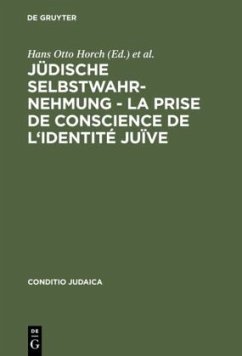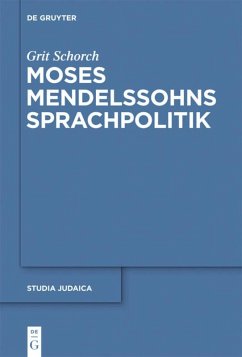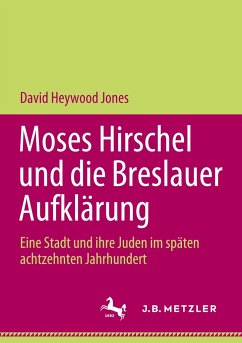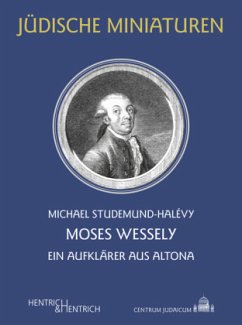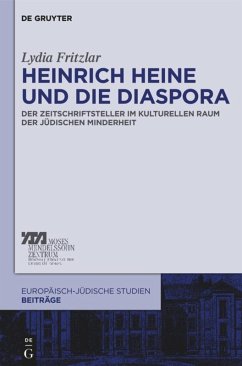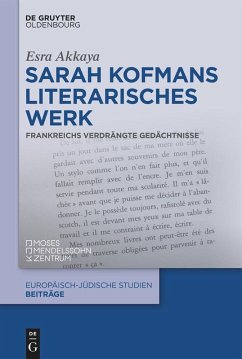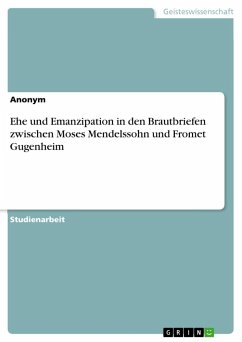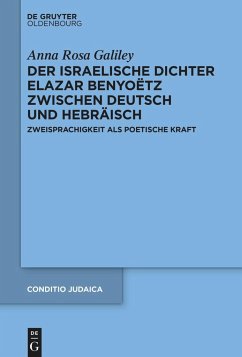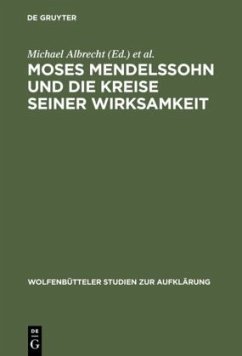
Moses Mendelssohn und die Kreise seiner Wirksamkeit
Versandkostenfrei!
Versandfertig in 6-10 Tagen
169,95 €
inkl. MwSt.

PAYBACK Punkte
0 °P sammeln!
Anläßlich des 200. Todestages von Moses Mendelssohn 1986 führte die Lessing-Akademie in Wolfenbüttel ein Symposium mit in- und ausländischen Gelehrten durch. Die Tagungsergebnisse werden in diesem Band vorgelegt. Die breitgefächerte Themenwahl zu theologischen, philosophischen, historischen und literarischen Fragen sollen ein Bild von den vielfältigen Bezügen vermitteln, in denen der bedeutendste jüdische Denker der deutschen Aufklärung zu sehen ist. Die zwanzig Forschungsbeiträge bieten sowohl problemorientierte Studien zu Mendelssohn und seinen Zeitgenossen als auch Spiegelungen seines Lebens und Werks in der Rezeptions-, Leser- und Wirkungsgeschichte. Dazu gehört auch, die Bedeutung Mendelssohns als Leitgestalt der jüdischen Emanzipation in Deutschland kritisch zu würdigen.
To mark the 200th anniversary of the death of Moses Mendelssohn in 1986, the Lessing Academy in Wolfenbüttel organized a symposium for scholars from Germany and abroad. The results of this gathering are presented here. The broad range of topics - theological, philosophical, historical, literary - reflects the multiplicity of contexts in which the most important Jewish thinker of the German Enlightenment demands to be regarded. The twenty contributions comprise both studies of Mendelssohn's approach to specific problems in comparison with his contemporaries and discussion of the ways in which his life and writings are reflected in the history of his reception and readership and the influence he exerted. This extends to a critical appreciation of Mendelssohn's significance as a leading figure in Jewish emancipation in Germany.
To mark the 200th anniversary of the death of Moses Mendelssohn in 1986, the Lessing Academy in Wolfenbüttel organized a symposium for scholars from Germany and abroad. The results of this gathering are presented here. The broad range of topics - theological, philosophical, historical, literary - reflects the multiplicity of contexts in which the most important Jewish thinker of the German Enlightenment demands to be regarded. The twenty contributions comprise both studies of Mendelssohn's approach to specific problems in comparison with his contemporaries and discussion of the ways in which his life and writings are reflected in the history of his reception and readership and the influence he exerted. This extends to a critical appreciation of Mendelssohn's significance as a leading figure in Jewish emancipation in Germany.



